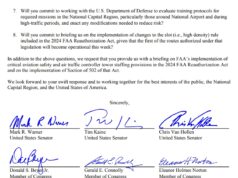SPONSORED CONTENT
Tractor-trailers take up a part of our nation’s roadways carrying large amounts of cargo and covering a large amount of territory. With those large loads, long hauls, and big trucks, the truck driving industry has seen a considerable increase in regulations over the past decade. In particular, truck drivers must adhere to Hours of Service regarding how long they drive, how long they sleep between driving hours, and when they take non-driving breaks.
Recently, the United States Department of Transportation’s Federal Motor Carrier Safety Administration (FMCSA) proposed significant changes to the Hours of Service. These proposed changes address concerns by the truck driving industry, who argue that the Hours of Service do not accommodate for their inability to control traffic flow and cargo schedules.
In its proposal, the FMCSA seeks changes such as splitting the long-haul drivers’ 10-hour sleeping requirement into two segments, the option to stop the 14-hour consecutive driving clock, and increasing from 100 to 150 miles the short-haul air-mile radius. Currently, truck drivers are prohibited from driving more than eight consecutive hours without taking a break. The proposed changes would alter that restriction as well, by allowing the off-duty break to be in the form of on-duty, non-driving status instead.
According to the FMCSA, the proposed changes could save millions for the U.S. economy and consumers by allowing loads to be carried in a more efficient manner. However, reports by authorities such as the North Carolina Department of Transportation show an increase in truck-related incidents by 900 between the years 2017-2018, as well as a concern that truck driver fatigue is underreported.
With growing concerns either way you look at it, the need to readdress regulations is apparent. “The concern for driver safety is real, as the sheer mass of tractor-trailers often leads to more severe damage and injuries when truck-related accidents occur,” says Attorney Richard Grungo. Although the need for more well-rested drivers may seem in direct opposition to the more efficient transportation of cargo, it is yet to be seen whether the proposed changes will help both.
As of now, the proposed changes are just that – proposals. Both FMCSA and the Office of Management and Budget must approve the changes for them to take effect.












